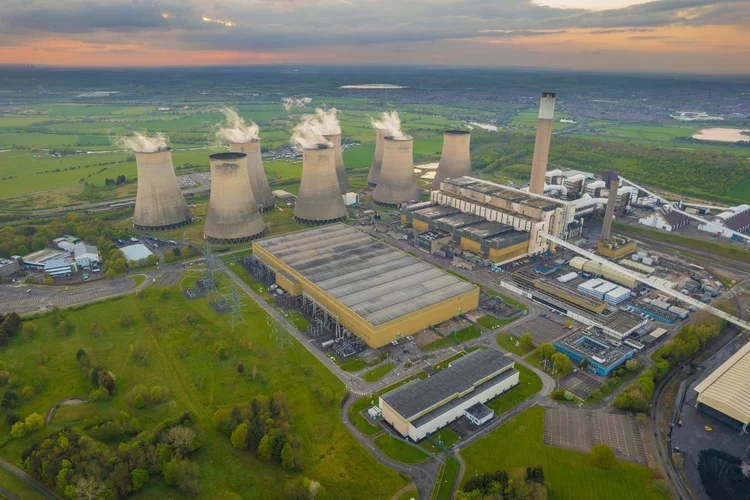
The last coal power station in the UK, Ratcliffe-on-Soar Power Station has closed – marking the end of electricity via coal in the country
By
After 142 years, the UK has closed its final coal power station near Nottingham – the first major economy in the world to do so – marking the end of burning coal to use for electricity.
Ratcliffe Power Station ended its operations on Monday 1 October, after running for 57 years. Since September 2023, it has been the only coal power station in use in the country.
An increase in renewable energy – rocketing from just seven per cent of the UK’s power in 2007 to more than 50 per cent by 2024 – combined with the harmful effects of burning coal on the planet have spearheaded the decision to end the UK’s long-standing relationship with coal.

‘Today’s closure at Ratcliffe marks the end of an era and coal workers can be rightly proud of their work powering our country for over 140 years,’ said Department for Energy Security and Net Zero minister Michael Shanks. ‘We owe generations a debt of gratitude as a country.’
‘The era of coal might be ending, but a new age of good energy jobs for our country is just beginning. The government’s clean energy superpower mission is about creating good jobs in wind power and new technologies like carbon capture and storage.’
In 1882, the UK became the birthplace for coal power after Thomas Edison created his Holborn Viaduct power station in London, powering lights in the city. From then until midway through the twentieth century, coal provided electricity for almost all UK homes and businesses.
What’s the future of UK energy?
Shifting to greener energy comes with concerns over the resulting job loss in the fossil fuel industry. At Ratcliffe, most of the 170 staff will be kept on for two years while the decommissioning process occurs.
‘I’m particularly keen on the way in which this Government, and indeed the previous Government, is trying to make sure that the new jobs, of which there are very many green jobs, go to the places which are being damaged by the changes,’ said Lord Deben, former chairman of the UK’s independent Climate Change Committee.
As well as utilising solar and wind energy, the UK Government have further plans to support alternate forms of energy outside of coal. As part of its 2030 vision, the Government aim to have a competitive battery supply chain that helps to support the UK’s net zero transition. Building more gigafactories – factories that produce batteries for electric vehicles (EVs) – is also part of the plan to significantly support the production and uptake of EVs throughout the country.




